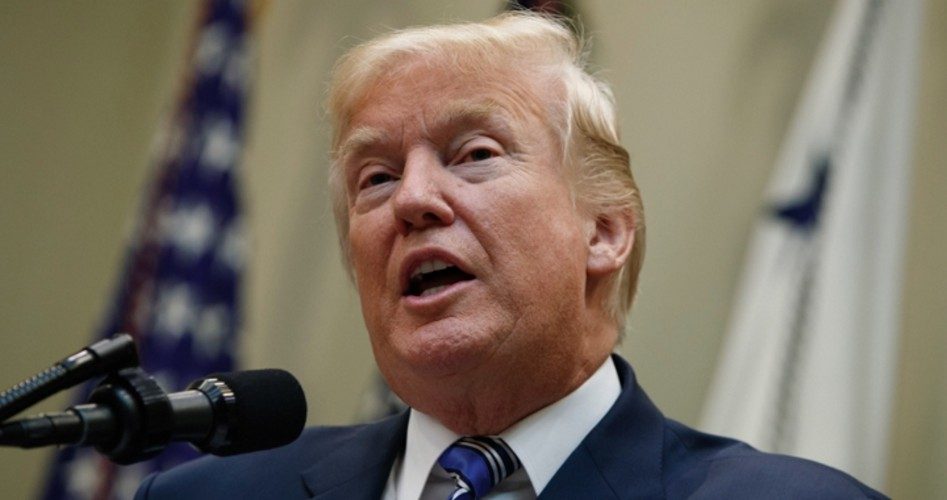
President Trump has signed an official directive reversing his predecessor’s plan for fully incorporating transgender individuals into America’s military. The move is a follow-up to Mr. Trump’s July 26 announcement via Twitter that transgenders — individuals who identify as opposite to their biological sex — would no longer be accepted for military service.
“After consultation with my Generals and military experts, please be advised that the United States government will not accept or allow transgender individuals to serve in any capacity in the U.S. military,” the president originally communicated in a series of Twitter posts. “Our military must be focused on decisive and overwhelming victory and cannot be burdened with the tremendous medical costs and disruption that transgender in the military would entail.”
In his August 25 memorandum, Mr. Trump noted that in 2016 President Obama reversed the long-time ban on transgenders in military service, dismantled the Defense Department’s “established framework by permitting transgender individuals to serve openly in the military, authorizing the use of the Departments’ resources to fund sex-reassignment surgical procedures, and permitting accession of such individuals after July 1, 2017.”
The president wrote that in his judgment, “the previous Administration failed to identify a sufficient basis to conclude that terminating the Departments’ longstanding policy and practice would not hinder military effectiveness and lethality, disrupt unit cohesion, or tax military resources.”
Earlier this year Mr. Trump’s defense secretary, James Mattis, had moved to delay implementation of Obama’s reversal on transgender troops in the military until January 2018, citing the need to further evaluate the impact on the military’s “readiness and cohesion.”
In the homosexual community, the GLBTQ Legal Advocates and Defenders (GLAD) and the National Center for Lesbian Rights (NCLR) have filed a federal lawsuit on behalf of five active-duty transgender military personnel contesting the ban. In a statement the two groups called the president’s memo a “senseless and unprecedented attack on dedicated service members who have played by the rules.”
Shannon Minter, a spokesperson for NCLR, said in a statement that “our military already has standards and systems in place to ensure our troops are qualified and fit to serve. Trump’s ban is about politics, not military policy, and it will make our country less secure.”
In tandem, GLAD’s Transgender Rights Project Director Jennifer Levi called the policy “a shameful slap in the face to people who put their lives on the line everyday to defend our country.” She added that “our military is strongest when all people who are fit to serve have the opportunity to do so. This unprecedented policy amounts to a purge of qualified, contributing troops, and will serve only to undermine unit cohesion and weaken military readiness.”
Among U.S. officials descrying President Trump’s common-sense decision was U.S. Senator John McCain (R-Ariz.), who insisted that “any American who meets current medical and readiness standards should be allowed to continue serving. There is no reason to force service members who are able to fight, train and deploy to leave the military — regardless of their gender identity.”
By contrast, a group of retired U.S. military generals and admirals issued an open letter in support of the president’s transgender ban, expressing their gratitude to him “for making the extremely courageous decision to reverse President Obama’s transgender social experiment. There may be an enormous amount of vitriol directed at you for making this policy correction, but please know that overturning this policy may have done more in the long-term to save the culture and war-fighting capacity of the U.S. military than perhaps any other military policy you will adopt as president.”
Among those signing the letter were retired Army Lt. Gen. William G. Boykin, a past commander of the Army’s Delta Force; retired Air Force Lt. Gen. Thomas McInerney; retired Army Maj. Gen. Gary L. Harrell, also a former Delta Force commander; retired Army Maj. Gen. Paul E. Vallely; retired Army Lt. Gen. Benjamin R. Mixon, past head of the Army’s Pacific Command; and retired Coast Guard Vice Adm. Dean Lee.
Photo of President Trump: AP Images



